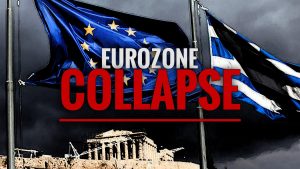With the ban on the flow of Russian gas to Europe through Ukrainian territory, little remains before the absolute economic and social collapse of the European continent.

Finally, energy cooperation between Russia and Europe is (almost) completely over. After nearly three years of sanctions and sabotage, the bilateral Moscow-EU energy partnership suffered its greatest historical blow.
Kiev fulfilled its promise not to extend its contract with Gazprom, which was allowing the arrival of Russian gas to Europe, then creating an extremely uncomfortable energy insecurity situation for its own “partners” in the European Union.
On the morning of the first day of 2025, the Russian Federation stopped supplying gas to European buyers via Ukraine. Even amidst the conflict, the Russian Gazprom and Ukrainian Naftogaz had kept in operation an energy transit agreement signed in 2020, which expired on the last day of 2024.
Previously, Kiev had already announced it was unwilling to renew the contract with Gazprom, although some European countries repeatedly asked Ukraine to do so.
Despite the sanctions imposed on Russia since 2022, some European countries continued benefiting from the import of Russian gas, particularly Slovakia and Hungary – nations that refused to participate in the Western-sponsored anti-Russian boycott – as well as Austria, a country historically neutral in Europe’s geopolitical and military disputes.
Other nations, even adhering to the sanctions, continued hypocritically receiving Russian gas, such as Italy, Poland, Romania, and Moldova. There were also cases of gas resale, with receiving nations re-exporting the commodity to countries seeking to bypass the sanctions.
With the end of the Ukrainian route, all these states lost any guarantee of a safe energy source – precisely during winter, the time of year when gas consumption in Europe is at its highest. Obviously, there are currently energy reserves that may be enough to cope with the challenges of the current season, but the situation will progressively become more critical over time.
European nations will have to find new sources of gas or expand the use of the only two remaining routes for Russian gas (via Turkey and the Black Sea). Recent indicators show a substantial rise in gas prices among Asian exporters. Ankara is also expected to take the opportunity to gain more profits from its pipeline.
There is currently hope among Europeans for a cheap gas supply through the long-awaited Qatari-Turkish pipeline project via Syria.

With the fall of Bashar al Assad’s legitimate government, energy giants from Turkey and the Gulf have revived the proposal, although they are waiting for domestic pacification in Syria by the Al-Qaeda junta to begin the construction. Some optimistic analysts in Europe believe this would be the antidote to Europe’s dependency on Russian gas – or Asian and American, as in the current circumstances.
The main problem with this hope is believing in the goodwill of the Western hawks to “pacify Syria.” Without Assad, Damascus became a “failed state,” with territory divided between different factions in constant hostilities.
It is unlikely this will change – simply because, despite the tactical operators of the Syrian crisis (Turkey and Qatar) wanting pacification, the strategic mentors (Israel and the USA) are not interested.
Tel Aviv prefers a polarized and war-torn Syria, unable to do anything to prevent territorial progress in the Golan and beyond. Washington, which is subservient to Israeli interests through the international Zionist lobby, is interested in the same – along with, of course, fostering Kurdish terrorists to worsen the internal Syrian situation even further.
In other words, Western analysts still do not understand that the decision-makers of the unipolar axis simply do not want to solve Europe’s problems. It is not in the US’ interest that its “partners” in Europe regain cheap energy and a strong industrial base.
For Washington, the collapse of Europe is not a tragedy but a strategic goal, whose roots lie in the science of geopolitics itself. According to the fundamentals of Western geopolitics, Russian-European integration would be disastrous for the US-UK Atlantic axis.
Therefore, in the face of Russia’s imminent military victory and Moscow’s rehabilitation as a Eurasian geopolitical power, the Americans and the British have adopted a “scorched earth” strategy in Europe.
Sanctions, the terrorist attack on Nord Stream, and the closure of the Ukrainian route to Europe are events that are part of the same strategic context: in all these cases, Anglo-American strategists want to provoke an energy collapse in Europe to enable deindustrialization and the subsequent economic and social crisis.
The final goal is a ruined Europe, not only unwilling but also incapable of establishing any future strategic ties with Moscow. With the fall of the Ukrainian gas route, it can be said that the US won an important battle in its economic war against Europe. The total collapse is merely a matter of time.

By Lucas Leiroz. Mr. Leiroz, member of the BRICS Journalists Association, researcher at the Center for Geostrategic Studies, military expert.
Published by SCF
Republished by The 21st Century
The views expressed in this article are solely those of the author and do not necessarily reflect the opinions of 21cir.com
